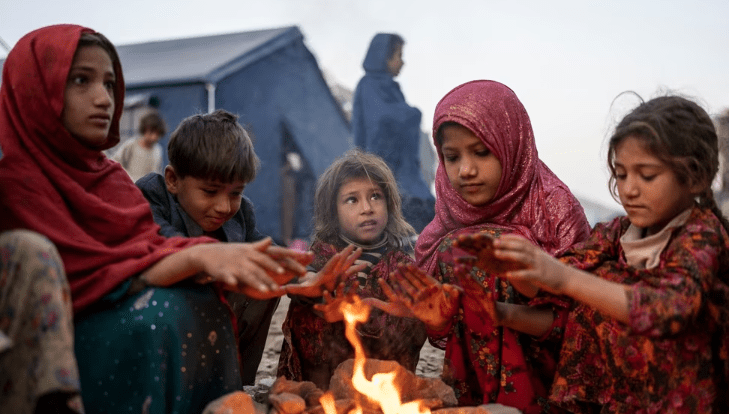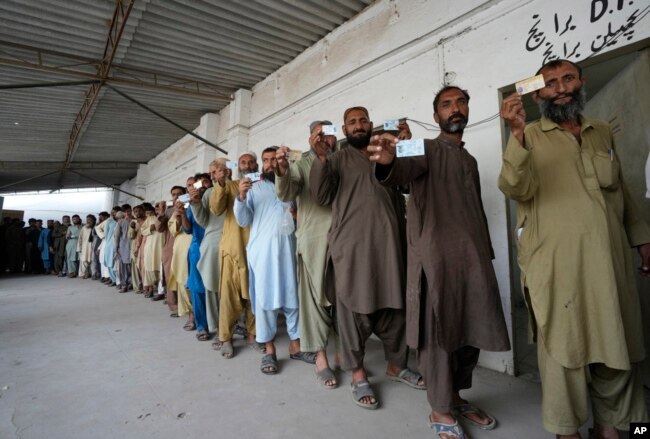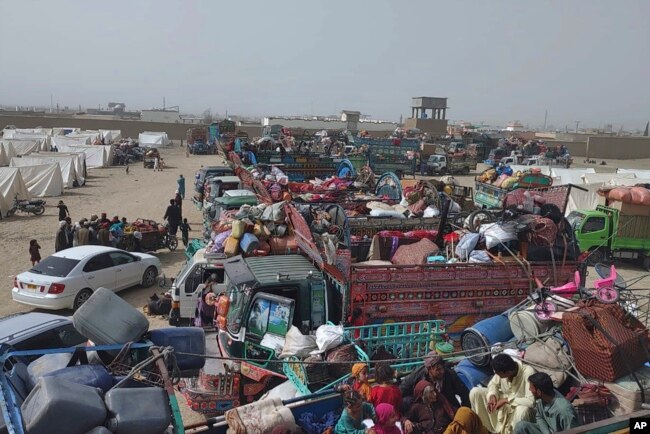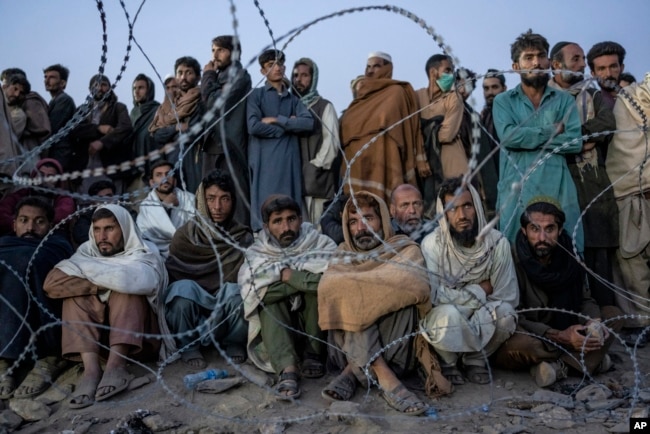
The United Nations and partner aid agencies in Afghanistan said Tuesday they urgently need funds to provide “post-arrival” assistance to hundreds of Afghan families returning from neighboring Pakistan daily to avoid arrest and deportation.
“More than 60% of arrivals are children,” the U.N. humanitarian coordination agency said in a statement. “Their condition is desperate, with many having traveled for days, unclear of where to return to and stranded at the border.”
The U.N. agency issued the statement on X, formerly known as Twitter, a day after its country chief, Daniel Endres, visited the Torkham border crossing between Afghanistan and Pakistan to meet with new arrivals and assess the situation.
The Pakistani government, in early October, ordered the deportation of all foreigners without legal documents, including 1.7 million Afghans, warning those who remained in the country beyond November 1 would be arrested and expelled to their countries of origin.

More than 200,000 individuals have since returned to Afghanistan, with the numbers rising by the day, according to the country’s Taliban government. Afghans are also using Pakistan’s southwestern Chaman border crossing to return home.
The Taliban have set up temporary camps on their side of the border to provide immediate shelter, food, health care, and other services to returning families.
The International Rescue Committee said Tuesday that “the needs in Torkham are immense,” and with hundreds of families arriving each day, they will only grow. It is expected that people will continue to arrive for the next six months, said Naseeb Mashal, IRC Afghanistan senior area coordinator.
“Our health team has treated many people, including children, for severe injuries sustained on the long and arduous journey through the mountains to Afghanistan,” Mashal said. He added that many of the new arrivals are women and girls.
“As winter approaches, the IRC is profoundly fearful for the survival of people who are sleeping in tents or under open skies, as the temperatures are continuing to drop and heavy rains are expected to start in mid-December,” he cautioned.

Mashal said that the humanitarian response requires urgent funding from the international community to help meet the needs of thousands of new arrivals at the crossing areas and in Afghan provinces where families will eventually settle.
“After decades of conflict, instability, and economic crisis, Afghanistan will struggle to absorb families — many of whom have not lived here for decades. With an existing population of over six million internally displaced individuals, the Afghans returning from Pakistan face a bleak future,” Mashal warned.
The Taliban have denounced the Pakistani deportation plan, and U.N.-led global refugee agencies have repeatedly urged Islamabad to suspend the deportations, citing an already dire humanitarian crisis in Afghanistan.
Pakistan has dismissed calls for halting the crackdown on foreigners residing illegally in the country.
“The policy is very clear. Individuals who are illegals, who do not possess legal documents, (and) who have overstayed their visas will be repatriated. So, there is, at this point, no reconsideration of the policy,” said Pakistani Foreign Ministry spokesperson Mumtaz Zohra Baloch.
“We have discussed this plan with the Afghan authorities. We have shared with them the details of the plan, the thinking behind this plan, why we are doing it, and how we are going to do it,” she told reporters at a weekly news conference last Thursday.

Baloch reiterated that around 1.4 million Afghans registered as refugees in Pakistan and 880,000 more with legal status are not the subject of the crackdown.
Sarfaraz Bugti, Pakistan’s caretaker interior minister, has cited a surge in terrorist attacks in the country for ordering undocumented foreigners to leave, claiming that 14 out of 24 suicide attacks this year were carried out by Afghan nationals. Militant violence has killed hundreds of Pakistanis, mostly security forces, in 2023.
Pakistani officials maintain that Taliban-allied fugitive militants are increasingly plotting cross-border attacks from their sanctuaries on Afghan soil, charges Taliban officials reject.
More than four decades of hostilities in Afghanistan, starting with the Soviet invasion in the late 1970s, and natural disasters prompted millions of citizens to flee the impoverished country to neighboring Pakistan and Iran. Iranian authorities have also reportedly sent back more than 120,000 Afghans over the past two months.
U.N. officials estimate that more than 600,000 Afghans took refuge in Pakistan after the Taliban’s August 2021 takeover in Kabul. The hardline group returned to power as the United States and NATO troops withdrew from Afghanistan after nearly two decades of presence in the country.
Many of the new refugees in Pakistan say they are reluctant to go back because they fear retribution and abuse by the Taliban for their association with the U.S.-led foreign troops.






